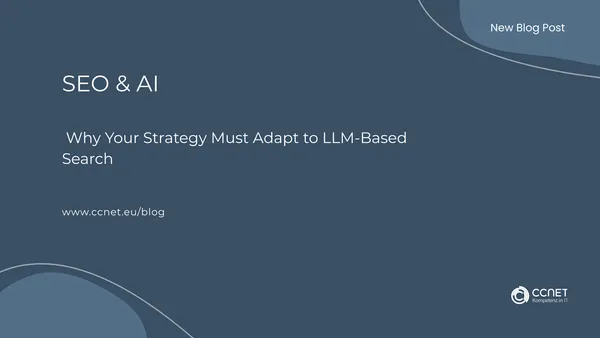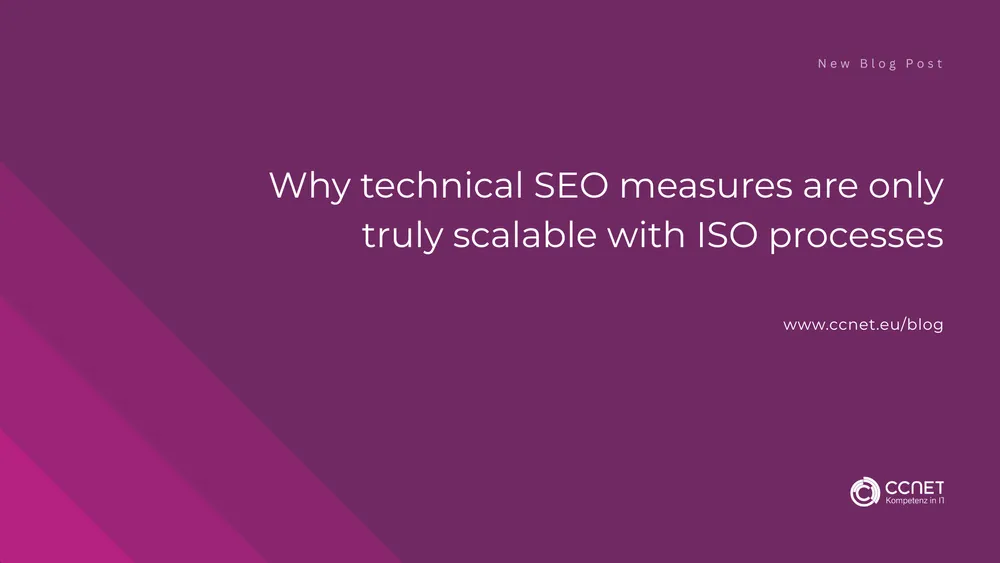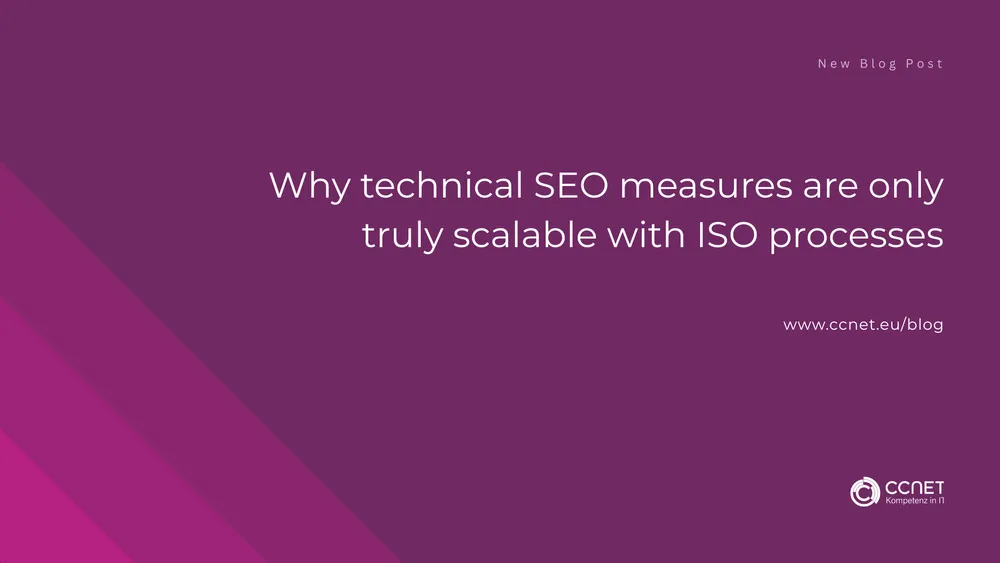
CCNet
May 29, 2025 • 2 min read

SEO & AI: Why Your Strategy Must Adapt to LLM-Based Search
Traditional Google search is no longer the only gateway to online visibility. More and more users are directing their queries to AI-powered systems like ChatGPT, Perplexity, or Google AI Overviews – and receiving precise answers in seconds. But what does this mean for your content? And how does SEO evolve when being the answer matters more than just getting a click?
AI Is Changing Search Behavior – and SEO Needs to Catch Up
If you're creating content today, you need to understand: Large Language Models (LLMs) search and evaluate content differently than traditional search engines. They analyze context, detect semantic depth, and prefer content that is well-structured, trustworthy, and instantly understandable. Keyword stuffing won’t work anymore – what you need is clarity, structure, and machine-ready content.
Rethinking Visibility: From Ranking to Citation
In the LLM context, visibility doesn’t necessarily mean ranking #1 on Google. What matters is whether your content is quoted, linked, or summarized in AI-generated answers. Being cited in AI Overviews or chatbot responses builds trust – even without the traditional website traffic. This requires a shift in mindset: your content must be created to be understood and referenced by machines.
SEO Is Becoming Strategic – Not Just Technical
It’s no longer just about metadata or technical markup, but about a holistic understanding of relevance and context. Companies that want to stay visible must realign their SEO strategy: focus on questions, not just keywords; connections, not keyword density; authority, not volume. The path to better visibility lies in building trustworthy, understandable, and strategically connected content.
Conclusion: AI Tools Are Reshaping Search – Your SEO Must Respond
LLM-powered systems are not the future – they are the present. Those who adapt will benefit from increased visibility, greater trust, and lasting authority. Now is the time to rethink SEO: not just for the algorithm, but for the evolving digital dialogue.
Further information can be found here: SEO
FAQs about LLM search systems
Why is traditional SEO with keywords no longer sufficient?
Because AI systems evaluate content based on semantic context, structure, and comprehensibility—pure keyword texts offer too little depth for this.
How is AI changing user search behavior?
Instead of searching for links, users search for answers directly in tools such as ChatGPT or Google AI Overviews – the content itself becomes the answer.
What does visibility mean in the age of AI?
Today, visibility means being mentioned or quoted in AI-generated answers – not necessarily ranking number one on Google.
What requirements do LLMs place on content?
Content must be machine-readable, logically structured, trustworthy, and immediately usable – even without additional context.
How should a modern SEO strategy be structured?
It must think strategically, respond to typical user questions, and clearly demonstrate authority and relevance in the topic.


